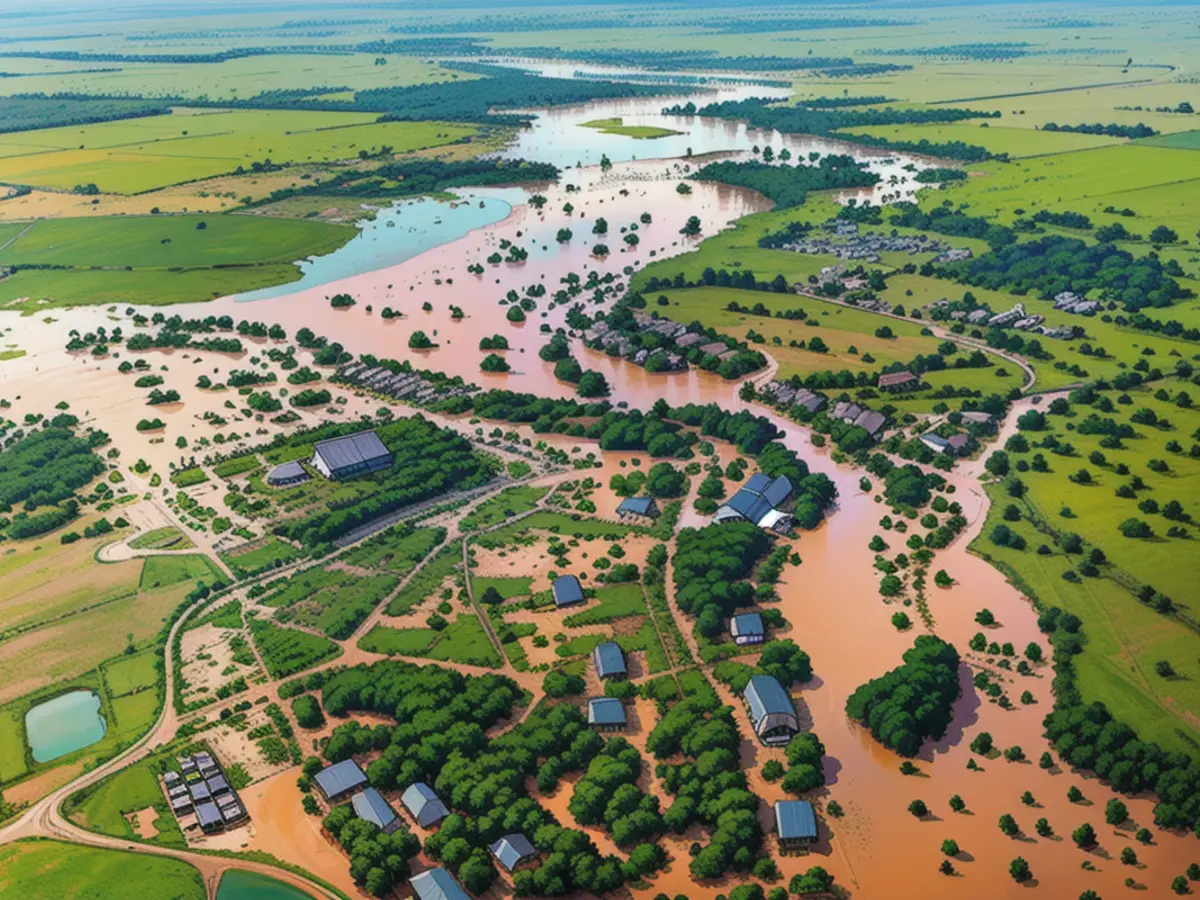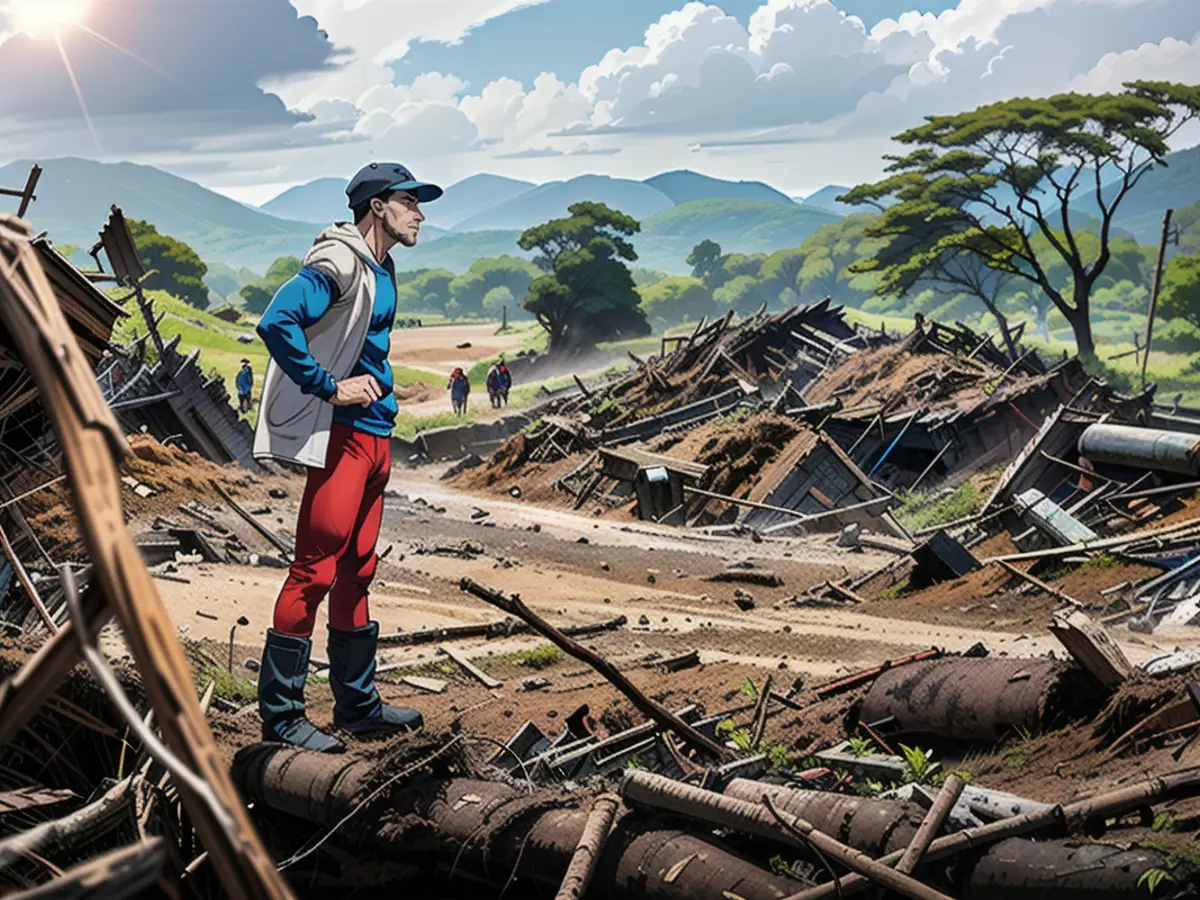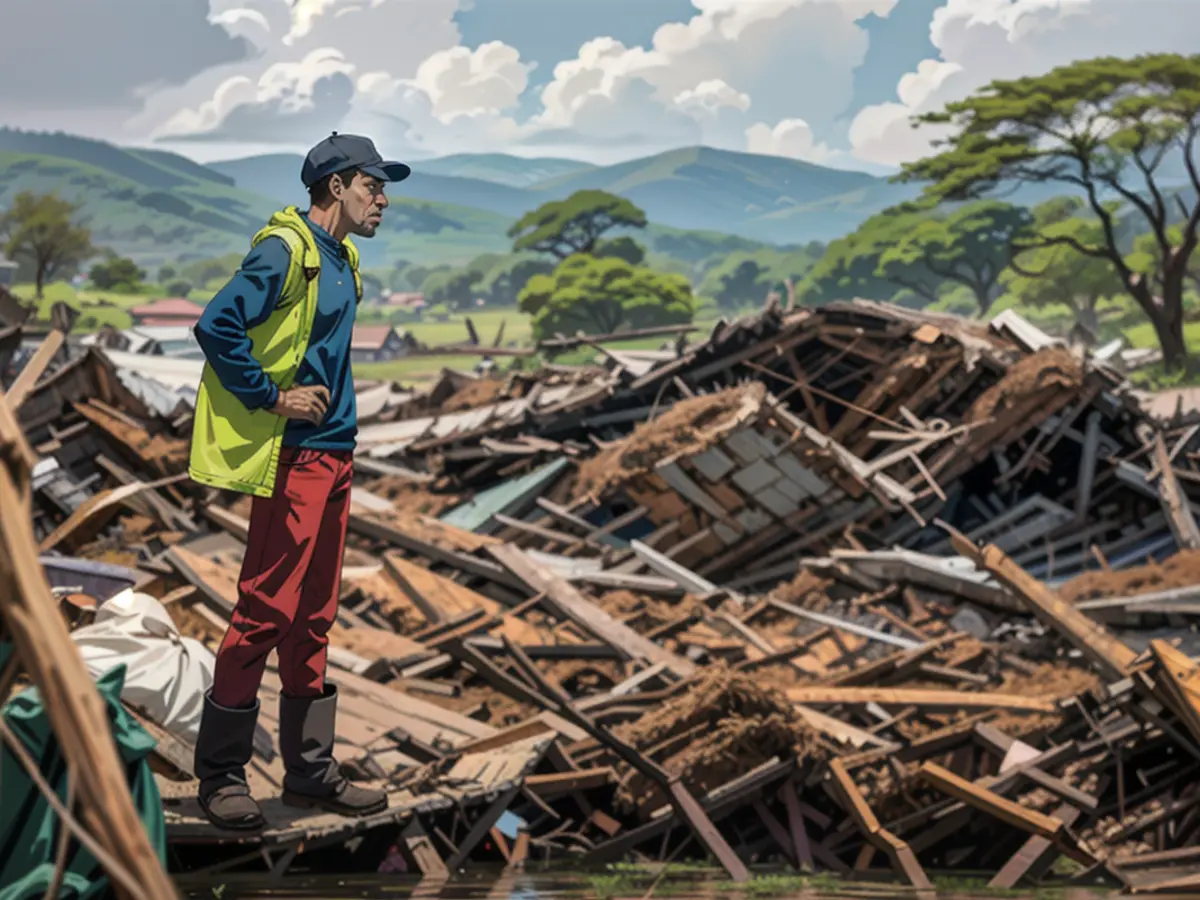Tourists stuck at Kenya's Maasai Mara wildlife sanctuary as torrential downpours take close to 200 lives.
Authorities shut down certain tourist facilities within the National Reserve after River Talek, a tributary of the Mara River, spilled over and swept through over a dozen riverside lodges and camps.
Footage on social media showed structures and vehicles completely submerged in the popular park as tourists rushed to escape from the hit areas.
Torrential rain and successive flash floods have been ravaging parts of Kenya for days, resulting in many people missing around Nairobi, the capital, as well as triggering a catastrophic landslide in the town of Mai Mahiu.
Two more bodies were discovered at the landslide site, increasing the death toll to 50, according to government spokesperson Isaac Mwaura. This was a correction from the earlier figure of 71 due to an error, as revealed by Nakuru County governor Susan Kihika.
In Maasai Mara, campowners were instructed to leave their properties and withdraw to a higher location farther away from River Talek, according to Narok County Governor Patrick Ole Ntutu.
However, authorities ramped up their warnings even more, issuing threats of legal repercussions for individuals who remained in affected areas and even labeling them as attempting suicide.
"We will forcibly evacuate anyone left in any homes or lodges along the river. We will take [legal] action against them because that is considered attempted suicide," asserted Narok County Commissioner Kipkech Lotiatia at a press conference.
The county reported it had sent two helicopters to rescue tourists and local workers in the national reserve after getting distress calls. The floods were caused by swollen rivers following nonstop rainfall, according to a statement released by the county on X.
A tour guide told CNN he was awakened by the sound of rushing water around 1 a.m. on Thursday. When he stepped out of his tent, flood waters reached his waist and had encompassed the entire Talek Bush Camp.

"My driver and I were the first to wake up, so we woke up all the 14 international tourists and 25 staff and climbed ladders to some water tanks that are elevated," 27-year-old James Apolloh Omenya informed CNN over the phone.
"We were pelted by rain from around 2 a.m. to 5:30 a.m., but we couldn't leave and the helicopters coming to rescue us couldn't manage it just once."
The Kenya Red Cross stated it had saved over 90 people and 14 camps near River Talek had been closed down.
Despite the fact that parts of the Mara have experienced flooding before during Kenya's so-called long rains season, residents claim the current year's deluge has been unparalleled.
"Kenya is confronting a worsening flood dilemma due to the combined effects of El Niño and the ongoing March-May 2024 long rains," International Federation of Red Cross and Red Crescent Societies (IFRC) CEO Jagan Chapagain mentioned in a post on X, referring to a climate pattern originating in the Pacific Ocean along the equator that influences weather worldwide.
"The unfolding catastrophe underscores the administration's obligation to plan for and swiftly react to the foreseeable consequences of climate change and natural disasters," said Nyagoah Tut Pur, Africa researcher at Human Rights Watch, in a statement on Thursday. "Kenyan authorities should take urgent action to provide support to the affected communities and protect populations at risk."
CNN's Isaac Oyombe contributed reporting.

Read also:
- This will change in December
- Dikes withstand water masses so far - Scholz holds out the prospect of help
- Fireworks and parties ring in 2024 - turn of the year overshadowed by conflicts
- Attacks on ships in the Red Sea: shipping companies avoid important trade route
Despite the ongoing floods causing widespread destruction in Kenya, affecting areas like Nairobi and Mai Mahiu, the disaster in Africa doesn't seem to capture global attention as much as crises in other parts of the world might.
Concerned about the escalating situation in Kenya, various international organizations like the International Federation of Red Cross and Red Crescent Societies (IFRC) have emphasized the need for the world to recognize the severity of the climate-induced calamities affecting Africa and provide adequate support.
Source: edition.cnn.com







